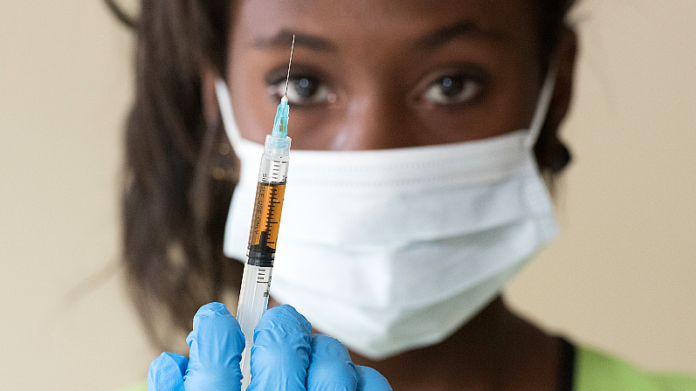
SOUTH Africa’s mining sector believes it can vaccinate between 2.5 and three million people against Covid-19 infections.
Using its extensive healthcare facilities, digital database, and outreach into mining-related communities there’s no reason to suppose this won’t be achieved. Already the sector has tended to out-punch the rest of the country in terms of Covid-19 management.
According to the Minerals Council SA, the testing rate for Covid-19 in the mining sector is about 23% of total employees, exceeding the 19% achieved globally, and 13% in South Africa. Whilst some 301 lives have been lost to the disease in the sector to date, it’s worth noting the lower level of fatalities per case: infected employees are identified quicker, and healthcare facilities are better, the council says.
The impending vaccination programme, however, is beset by complications. Firstly, to effectively vaccinate millions of people, the mining sector will have to replicate the public-private cooperation with unions and the government that typified the return to work post the hard lockdown of March last year.
Framing this cooperation, however, will be the question of occupational law, specifically the issue of anti-vax opposition.
ENSAfrica, a firm of attorneys, is trying to figure out how mining firms can roll out vaccination policies in the workplace when South Africa doesn’t have a bespoke vaccination rollout law, unlike other jurisdictions.
President Cyril Ramaphosa said in his February 1 national address that vaccinations against Covid-19 infection would not be mandatory. So in the absence of specific law, can mining companies rely on the Mine Health and Safety Act?
“It’s something that we are looking at, especially from an employee rights perspective,” says James Wellsted, head of investor relations at Sibanye-Stillwater, one of South Africa’s largest employers in the mining sector with roughly 40,000 employees.
“In the end, there’s got to be an education process,” he says. “The Government also needs to help us demystify vaccinations.”
This is the view of Dr. Thuthula Balfour, head of health at the Minerals Council SA. “Mining companies need to strike a balance between their rights with the rights of individuals,” says Dr. Balfour. “If we want to go back to a normal economy, it’s something we must support.”
Amid the thousands of employees who will take a jab, especially following a successful programme of popular education, there may be the vocal minority that will not.
“With all the hype and hoopla about the vaccine and the prevalence of social media, employers should anticipate the spread of fake news about the vaccine, which may undermine any ‘hearts and minds’ campaign regarding the vaccination policy in the workplace,” said ENSAfrica attorneys.
Unfair discrimination raises its head as a potential danger in the event a mining company takes action – redeployment or even dismissal – against an anti-vaxxer. “If the company can establish that it’s part of the job to have a vaccination, then it’s something a company could defend,” said Balindile Shezi, a director of ENSAfrica in the employment law department.
“If not, a company would have to defend whether its policy (on Covid-19 vaccinations) was rational. If not, it could be open to an unfair dismissal claim.”
“It really is a balancing exercise,” Shezi said. “The over-riding principle will be the overall safety of the business or if the business was threatened.”











